Is the shiny faucet in the kitchen slowly becoming grimy and lackluster? Is this happening with your faucet, there is calcium buildup forming on the kitchen faucet. Due to hard water minerals, the faucet is at risk of accumulating unsightly stains due to calcium deposits.
How to prevent calcium buildup on faucets? If you prevent calcium buildup, the faucet finish will shine as new and you don’t need to clean it regularly.
Why Does Calcium Buildup on Faucets?

If your faucets have a cloudy appearance, it is possible due to calcium minerals in the water. Calcium from hard water starts getting collected around the faucet over time.
Minerals in hard water are higher than in soft water. Calcium and Magnesium are the most common minerals in hard water. These minerals cause buildups around the faucet and refer as calcium buildup or magnesium buildup.
Calcium buildup doesn’t pose any health risk but it damages the faucet finish and body. Hard water doesn’t make soap scum in the quantity. So, to wash dishes, you need to use more soap. But fortunately, the prevention of calcium deposits is a simple task which is described below.
How To Prevent Calcium Buildup on Faucets?

Calcium deposits won’t occur overnight, it is a slow process and takes months. But we ignore it until we don’t see white stains on the faucet. It is essential to prevent calcium buildup on faucets so their shine remains new and the water supply won’t get clogged.
Dry The Faucet
This is a free and fairly easy solution to prevent calcium buildup on faucets. You should clean the faucet after every use. Water drops on the faucet are responsible to make calcium buildups.
Water evaporates from drops and mineral stays on the faucet causing white stains on it. So, cleaning drops is essential to keep the faucet shining as new.
Use a Water Softener System
If you are a busy person and don’t have time to clean the faucet after every use, a water softener is the best solution for you to prevent calcium buildup.
Connect a water softener system to the main water supply line of the house so it cleans the whole water. It is good for faucets and other appliances in the kitchen. A water softener system eliminates minerals from hard water like calcium and magnesium.
It may be a costly solution but once you installed a water softener system, you will never complain about the hard water effects on the faucet. No mineral buildups, no water clogging, and no damage to the body, just pure water that will be good for both cleaning and washing.
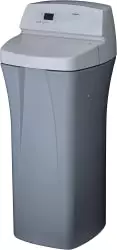
Whirlpool Automatic Whole House Soft Water Softener
Rating – 4.8/5
Try Easy Fix – Best Rated Hard Water Faucets For The Kitchen
How To Remove Calcium Deposits From The Kitchen Faucet?
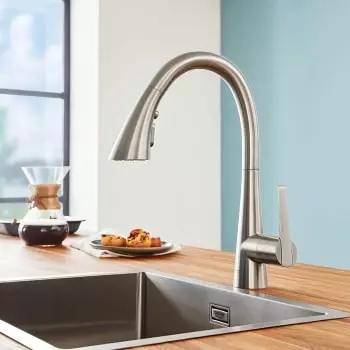
White vinegar is a safe and easily available natural cleaner. Take the white vinegar into the bowl and soak a cloth into it.
Wrap the cloth on the calcium deposits on the faucet. You may use paper towels instead of cloth to wrap different parts of the faucet.
Keep the cloth on the faucet for a minimum of an hour. Now, remove the cloth and clean the faucet with water. If still there are some deposits use a toothbrush to remove them. Rinse the faucet and wipe the faucet surface with a dry cloth. You should perform this cleaning process once a month so calcium deposits won’t get accumulated.
How Do You Change Hard Water To Soft Water At Home?
Hard water is not good for the taste and to prepare food. Hard water can clog the water pipes due to calcium buildup and reduce the flow of water. on the other side, soft water doesn’t have any minerals.
Hard water contains high minerals so it leaves behind a bitter aftertaste. It also creates stains on the dishes.
If you are experiencing hard water problems at home, you should try to soften the hard water.
The only long-term solution is to convert hard water into soft water and use a water softener system. A whole house water filter is recommended if you have hard water. It will make your life easier in the kitchen.
A water softener neutralizes the hardness of the water. A one-time investment will save faucets and other kitchen appliances.
There is another solution that is free but it isn’t for the faucet. This solution is only good for cooking.
Change hard water to soft water at home by boiling the water. Boiled water is free from minerals. After boiling the water, let it cool. All minerals wills settle down in the pot. Separate them by using a ladle to transfer them into another pot. You will get clean soft water to drink or cook.
Why Does My Tap Water Leave White Residue?

You aren’t alone if you see white residue on the faucet. Tap water creates this. This problem is across the US.
The white residue is the result of minerals in the tap water. Whatever comes into contact with these minerals, becomes a victim of white deposits. A higher amount of minerals usually signifies higher levels of white residue.
As water flows through the faucet, it dissolves minerals on the faucet body. These minerals precipitate out of tap water onto the faucet and dishes.
Check also – How To Remove Hard Water Deposits From Kitchen Faucet Aerator?
Frequently Asked Questions
Does Brita Filter Remove Calcium Buildup?
Brita filter removes calcium but with limitations. It removes a limited quantity of calcium carbonate. But it reduces the taste and odor of chlorine in the water. Brita water filter removes only 10-20% of the calcium from the water. It means the hardness of the water is not much reduced. Brita filter is not designed to remove calcium and magnesium so you may get smelly hard water.
Does a Whole House Water Filter Remove Calcium Buildup?
Yes, definitely a whole house water filtration system removes calcium and other minerals from the hard water and makes water soften. It makes water safe to drink and cook. You can use water for outlets and appliances.
Along with removing minerals, it also removes bad taste and odor from the water. Cleaning the faucet requires less effort if you have calcium-free water.
Does Filtered Water Stop Limescale?
Yes, filtered water prevents and stops limescale. It filtered out all minerals from the water that causes hardness. So, no buildups are formed on the faucet.
Conclusion
Hard water and its deposits are the main reasons, why a faucet loses its shine within a few months. It also slows down the water pressure. Fortunately, by preventing the calcium buildup, it becomes easy to keep the faucet as new for a long time. A water filtration system will help to prevent the buildup of hard water and its minerals. Now you know how to prevent calcium buildup on faucets, so faucets in your kitchen won’t get affected by the hard water.
🚀 Editor's Picks From Amazon For Our Readers

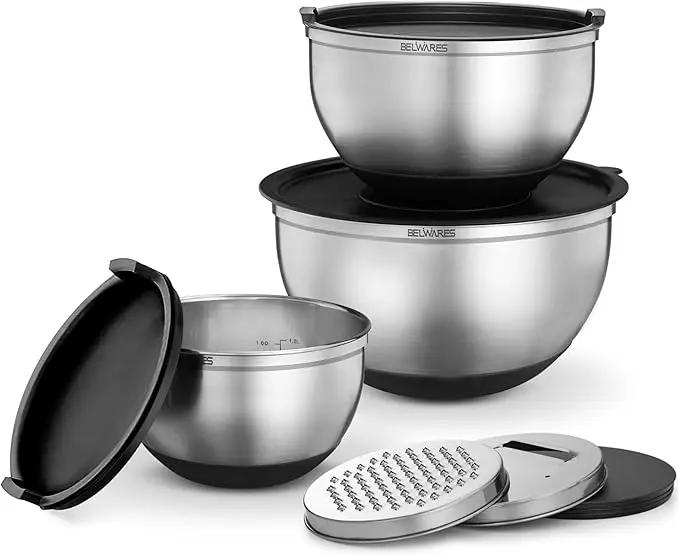

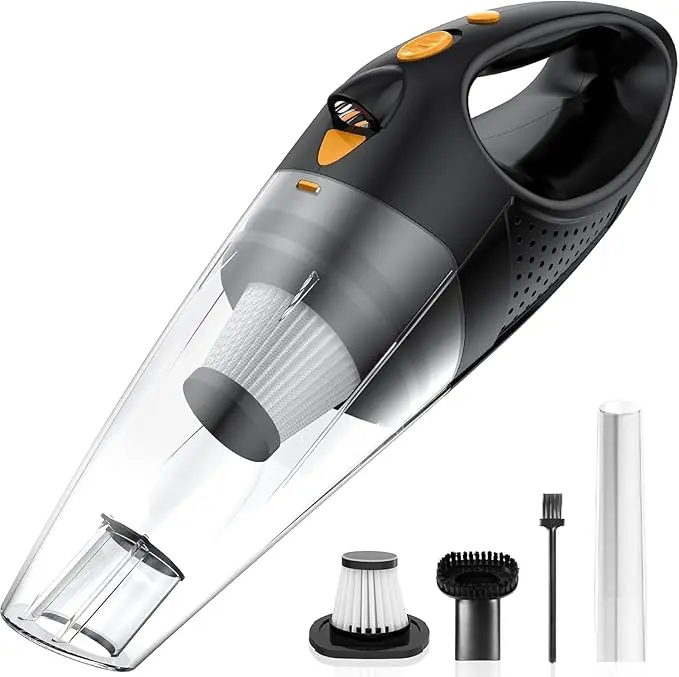
Powools Handheld Vacuum Cordless with 2 Filters, Car Vacuum Cleaner High Power with Fast Charge
Check on Amazon ➯4.5 ⭐
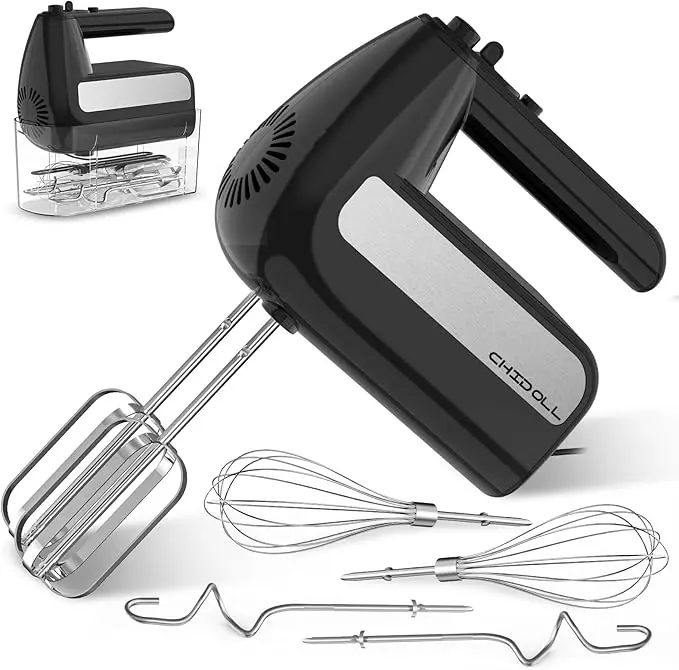
5-Speed Electric Hand Mixer, 800W Handheld Mixer with Turbo for Baking & Cooking
Check on Amazon ➯4.5 ⭐
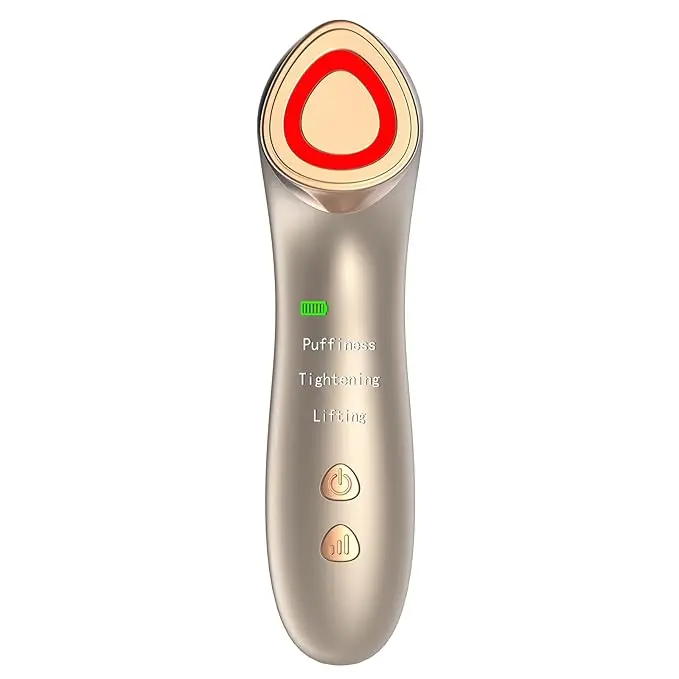
Skin Tightening Face Machine - Microcurrent Anti-Aging Face Massager Eye De-Puffing Device
Check on Amazon ➯4.5 ⭐
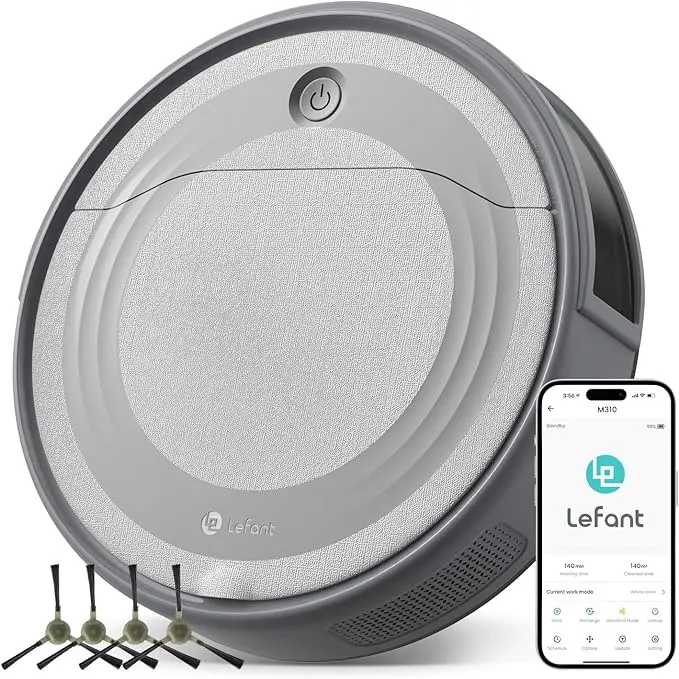
Lefant M310 Robot Vacuum Cleaner,4500Pa Strong Suction, Slim Design, Quiet, PreciSense Obstacle Avoidance,
Check on Amazon ➯4.6 ⭐

